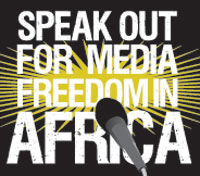UNHCHR grills Ethiopia on anti-terror law

Peppered with questions about an indefensible record of abuse -jailing the second largest number of journalists in Africa and leading the continent in Internet censorship - representatives of the Ethiopian government responded with cursory talking points and bold denials in contradiction of the facts.
Several committee members raised concerns about Ethiopia's detention of several journalists on suspicion of terrorism, which is broadly defined in the country's far-reaching antiterrorism law. (CPJ research shows a total of six journalists are being held.)
"When we get reports that journalists get themselves arrested on grounds of violation of this particular proclamation, when seeking to enter the Ogaden or, even perhaps more recently, when engaging in Internet blogs purporting to criticise potential contributory responsibility of the government to the current drought," said Sir Niger Rodley, "there does seem to be real problems of sweep and scope in that legislation." Under the law, journalists risk lengthy prison sentences if the government deems their work favourable to groups and causes labeled as terrorists, including armed rebellions and banned opposition party Ginbot 7.
The government's high-profile imprisonment of Johan Persson and Martin Schibbye, two Swedish journalists arrested in eastern Ethiopia while covering the activities of the separatist Ogaden National Liberation Front, which the government designated as a terrorist group, drew a lot of questions, particularly from committee member Krister Thelin. After being repeatedly pressed about the fate of the journalists and details of the legal procedures following their arrests, a flustered ambassador Fisseha Yimer Aboye, head of the Ethiopian delegation, told the committee that no further information would be provided. Rodley pressed the delegation to explain the legal procedures surrounding the arrests of two other journalists, Woubshet Taye and Reeyot Alemu, on suspicions of terrorism.
Read the full blog post on http://cpj.org.






